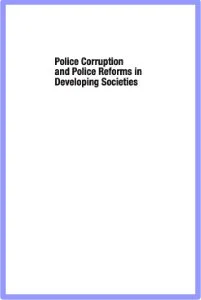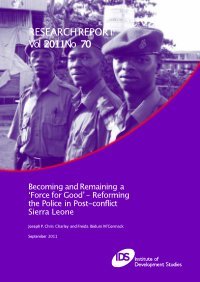Edited by Kempe Ronald Hope. Sr.
Much of the literature on police corruption and police reforms is dominated by case studies of societies classified as developed. However, under the influence of globalization, developing societies have become a focal point of scholarly interest and examination. Police Corruption and Police Reforms in Developing Societies provides critical analyses of the extent and nature of police corruption and misconduct in developing societies. It also examines police reform measures that have been implemented or are still necessary to control and mitigate the effects of police corruption in developing societies. This book offers a comprehensive and authoritative account of the causes and consequences of police corruption. It also relates lessons learned from police reform efforts that have been made in a wide cross section of developing societies spanning several continents.
Boca Raton, FL: CRC Press, 2016. 270p.









